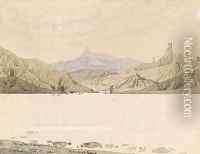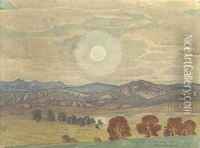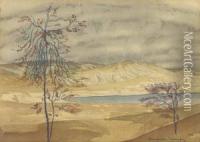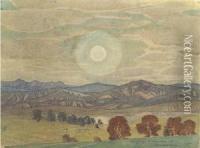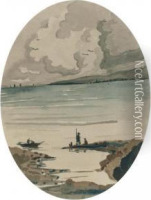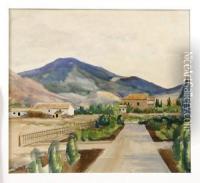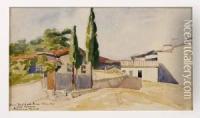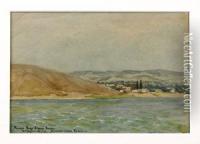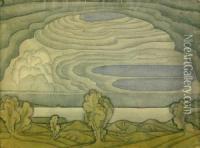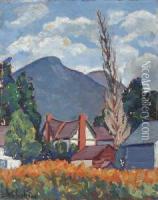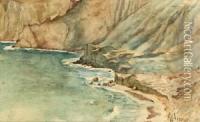Maksimilian Aleksandrovich Voloshin Paintings
Maksimilian Aleksandrovich Voloshin, a pivotal figure in Russian culture, was born on May 28, 1877, in Kiev, then part of the Russian Empire. His multifaceted career spanned poetry, art, and literary criticism, making him a prominent personality in the Silver Age of Russian poetry. Voloshin's upbringing and education played a critical role in shaping his intellectual and artistic directions. He was deeply influenced by his travels across Europe and his studies at the Sorbonne and in Moscow, where he was exposed to a myriad of cultural and philosophical currents.
Voloshin's poetic oeuvre is notable for its depth and diversity, incorporating themes of nature, philosophy, and spirituality. His works reflect a profound contemplation of the human condition, often infused with mystical elements and a keen sense of history's cyclicality. As a poet, he was admired for his ability to weave complex philosophical concepts with vivid imagery, earning him a distinguished place among his contemporaries.
In addition to his literary achievements, Voloshin was also an accomplished artist. His paintings, much like his poetry, were deeply imbued with symbolic meaning, showcasing his fascination with the metaphysical. Voloshin's art often explored themes of landscape, heritage, and the divine, capturing the transcendental beauty of the Crimean Peninsula, where he made his home in the town of Koktebel. This place became a cultural hub, attracting intellectuals, poets, and artists, and serving as a sanctuary for creative minds during the tumultuous years of the Russian Revolution and the Civil War.
Voloshin's intellectual home in Koktebel was not only a retreat but also a vibrant literary salon that played host to many significant figures of Russian literature and art. Despite the political upheavals of his time, Voloshin remained a figure of moral and intellectual authority, advocating for peace and understanding among the conflicting factions. His house in Koktebel is now a museum dedicated to his life and work, preserving the legacy of a man who was deeply committed to the cultural and spiritual life of Russia.
Maksimilian Voloshin's death on August 11, 1932, marked the end of an era. His contributions to Russian poetry, art, and intellectual thought have left an indelible mark on the cultural landscape of the 20th century. Voloshin's life and work continue to inspire and intrigue scholars, artists, and readers, embodying the spirit of an age that sought to bridge the divides of human experience through the power of art and poetry.
